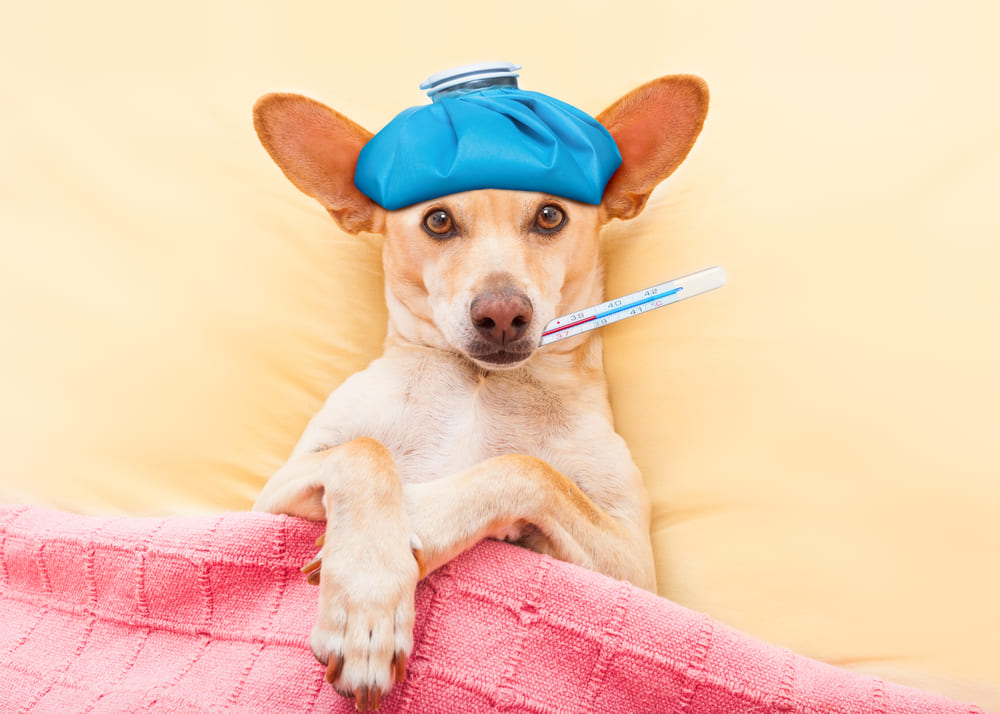Spring weather finds us spending more time outside, enjoying the warmth and sunshine. Resuming exercise and enjoying the fresh air provide numerous benefits for both our physical and mental well-being. More time spent outdoors does increase the risk of exposure to certain diseases and awareness of these diseases as well as taking appropriate preventative measures will keep your pet safe and healthy. This month’s blog post discusses leptospirosis facts and prevention.
What is Leptospirosis?
Leptospirosis is a bacterial infection that may ultimately cause kidney and liver failure in dogs. Cats, fortunately, appear to be immune to the disease and not considered at risk. The bacterium causing leptospirosis is passed through the urine of an infected animal into water sources. Many animal species are at risk of infection or may be carriers of the disease including livestock, wildlife and rodents. If an infected animal urinates near a puddle of water, freshwater lake, stream, or even into wet soil, they deposit infectious Leptospira bacteria that can live a long time in such an environment potentially passing on the infection to other susceptible animals.
Is my indoor dog safe?
Many people falsely assume their dog is not at risk of exposure to leptospirosis if they do not live near livestock, do not go hiking, and do not go swimming in natural sources such as lakes or streams. This, unfortunately, is not true. The bacterium is transmitted from the environment through your pet’s bloodstream through mucous membranes (eyes, nose, mouth) or cuts in the skin. Something as simple as walking through wet, infected soil or drinking from contaminated puddles in an urban environment puts your pet at risk. In fact, of the two confirmed cases of leptospirosis this author has been personally involved with, one dog resided in Philadelphia and another in a manicured townhome in Chester County. Neither dog was taken hiking, instead they only walked on paved roads and sidewalks. The fact that Leptospirosis is often transmitted in the urine of rodents (rats, mice, squirrels and chipmunks) puts a higher number of dogs at risk of potential exposure. Leptospirosis is considered a disease with zoonotic potential meaning an infected animal may spread the disease to a human. The disease is not usually fatal in humans but can cause severe illness necessitating dramatic intervention. Humans should take extreme care when cleaning up dog urine.
Signs of leptospirosis in dogs usually begin within one week of exposure to the bacteria. Signs can vary from mild to severe and life-threatening. Leptospira bacteria attach to the cells that line blood vessels causing severe inflammation and affecting the clotting ability of the blood. The organs most affected by the disease include the liver and kidneys.

Clinical signs of leptospirosis include the following:
- Fever
- Loss of appetite
- Vomiting/diarrhea
- Weakness/depression/lethargy
- Dehydration
- Excessive thirst or urination
- Muscle soreness
- Jaundice (yellowing of the skin and whites of the eyes)
- Pinpoint bleeding under the skin
- Redness of the eyes due to uveitis
- Difficulty breathing (if bleeding into the lungs is occurring)
How can I protect my pooch?
Treatment for leptospirosis is possible and often successful with early recognition of signs and rapid diagnosis. Your veterinarian will recommend hospitalization for IV fluids, antibiotics and supportive care. In severe cases, where kidney failure has occurred, dialysis may be recommended. The sad reality is that prevention by vaccination is much preferred over emergency treatment. Treatment of liver failure or kidney failure may not be successful in dogs due to financial limitations and limited availability for kidney transplants or dialysis.
Vaccination against leptospirosis is affordable and safe. The initial series consists of two vaccines, given approximately one month apart, followed by a yearly booster vaccination. Some vaccines have been proven to limit the shedding of the bacteria into the urine in affected dogs, lowering the potential risk to other family members, humans or animals. Limiting your dog’s exposure to standing water, wildlife and rodents will also help prevent the disease. Protecting your family and dogs from leptospirosis is safe, easy, and affordable. The peace of mind is well worth it. Please schedule a vaccine appointment with your favorite Longwood Veterinary Center veterinarian today.
